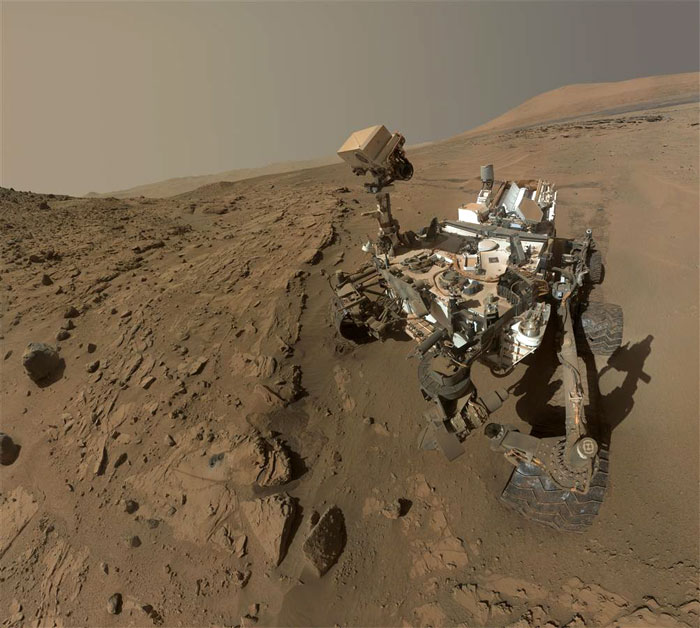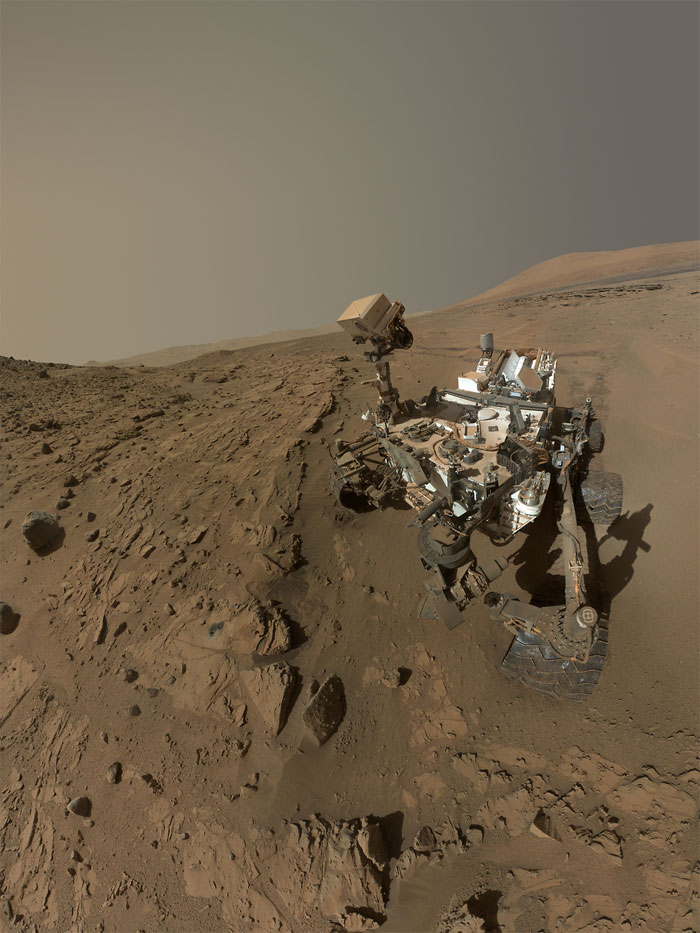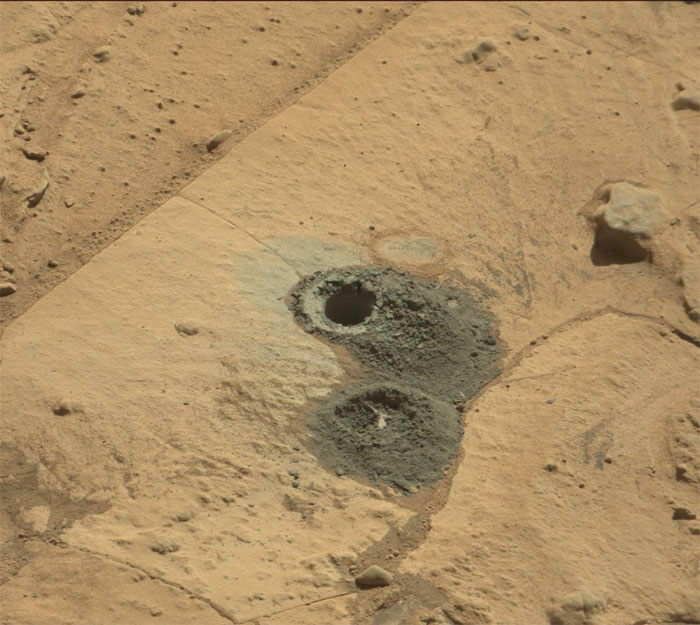.

Curiosity Rover Snaps Selfie to Celebrate First Martian Year
.
The latest selfie from NASA's Curiosity rover marks the "Marsiversary" of the robot's landing on Mars. By Earth's reckoning, that landing happened almost two years ago — 687 days, which equals one Martian year.
The six-wheeled, nuclear-powered rover has done a lot since its touchdown on Aug. 5, 2012, including studies that determined its stomping grounds were once potentially habitable for Earth-type organisms. But there's lots more to do, including a climb up the foothills of Mount Sharp, also known as Aeolis Mons.
The rover was originally slated for a mission lasting just one Martian year, but the mission already has been extended for as long as its battered wheels can keep going.
Curiosity snaps its selfies by sticking out its robotic arm, turning the camera on the end of the arm toward itself and taking lots of pictures. The images are stitched together to create a mosaic — but because of the way they were taken, the robotic arm never appears in the picture.
This selfie shows a couple of the holes that Curiosity drilled in a rock nicknamed Windjana. For more of Curiosity's self-portraits, check out this wide-angle shot from April, and a couple of selfies from more than a year ago. More than an Earth year ago, that is.
Quelle: NBC
.
Curiosity Self-Portrait at 'Windjana' Drilling Site
.

NASA's Curiosity Mars rover used the camera at the end of its arm in April and May 2014 to take dozens of component images combined into this self-portrait where the rover drilled into a sandstone target called "Windjana." The camera is the Mars Hand Lens Imager (MAHLI), which previously recorded portraits of Curiosity at two other important sites during the mission: "Rock Nest"
Winjana is within a science waypoint site called "The Kimberley," where sandstone layers with different degrees of resistance to wind erosion are exposed close together.
The view does not include the rover's arm. It does include the hole in Windjana produced by the hammering drill on Curiosity's arm collecting a sample of rock powder from the interior of the rock. The hole is surrounded by grayish cuttings on top of the rock ledge to the left of the rover. The Mast Camera (Mastcam) atop the rover's remote sensing mast is pointed at the drill hole. A Mastcam image of the drill hole from that perspective is at
.

The hole is 0.63 inch (1.6 centimeters) in diameter. The rover's wheels are 20 inches (0.5 meter) in diameter.
.
Most of the component frames of this mosaic view were taken during the 613th Martian day, or sol, of Curiosity's work on Mars (April 27, 2014). Frames showing Windjana after completion of the drilling were taken on Sol 627 (May 12, 2014). The hole was drilled on Sol 621 (May 5, 2014).
MAHLI was built by Malin Space Science Systems, San Diego. NASA's Jet Propulsion Laboratory, a division of the California Institute of Technology in Pasadena, manages the Mars Science Laboratory Project for the NASA Science Mission Directorate, Washington. JPL designed and built the project's Curiosity rover.
Quelle: NASA
5185 Views
